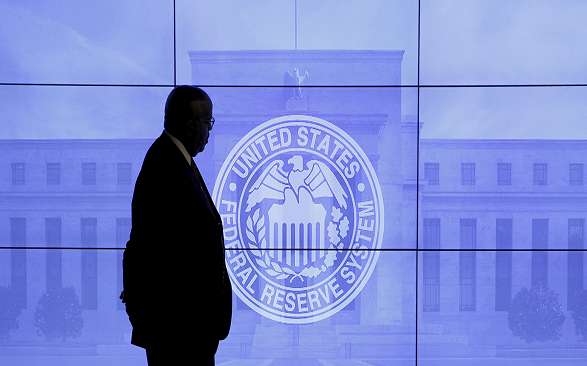by Jude Ayua
Three blockchain advocacy groups, the Blockchain Association, Texas Blockchain Council, and DeFi Education Fund, have filed a lawsuit against the U.S Department of the Treasury and the Internal Revenue Service (IRS), over the IRS 2024 rules classifying decentralized finance (DeFi) operators providing services as brokers for tax purposes. The rules require DeFi brokers to report overall proceeds from certain digital assets transactions they facilitate for customers. The suit also added Janet Yellen, in her official capacity as Secretary of the Department of the Treasury, as a co-defendant.
No brokers in DeFi transactions
The lawsuit argues that the new IRS requirement could irreparably harm DeFi technology, claiming it is an “unlawful and unconstitutional overreach” that fundamentally misunderstands the nature of DeFi. According to them, “DeFi software allows people to buy, sell, and exchange digital assets directly with each other, without the need for expensive and unsecure third-party intermediaries—i.e., brokers.”
The groups emphasize “there is simply no broker-like entity involved in a decentralized transaction,” arguing that the Treasury’s mandate for DeFi operators to act as brokers undermines this fundamental principle. This emphasis is critical, as one of DeFi’s intrinsic features is the elimination of costly and vulnerable intermediaries, offering users globally accessible, secure, and efficient financial transactions.
Threat to DeFi
The new IRS rules have a reporting requirement for DeFi brokers.
The groups further argue that it is impossible to comply with the new requirements “if DeFi is to remain what it is,” because compliance would make DeFi operators become intermediaries, contrasting their defining characteristics. They also stated technical and cost effects of compliance with the rules:
“If the Final Rule stands, America’s DeFi community will be unable to comply, because it is technologically impossible to do so; because most participants—many of them startups—cannot afford the staggering costs of compliance.”
The groups also highlight the benefits of DeFi, “one of America’s cutting edge, innovative technologies” which the new rules threaten to destroy:
“These technological advances provide significant benefits for countless Americans, including the ability to transact quickly, securely, and cheaply across the globe. Many of those benefits are possible only because DeFi enables direct user-to-user transactions, without brokers,” they argue.
Read also: The U.S. IRS introduces new tax rules for digital assets brokers, includes DeFi.
Reliefs sought
Arguing that it is the judiciary’s role and not the Treasury’s, to determine if a DeFi operator could be “broker,” the groups urge the court to ensure that the new rules “align with statutory intent and technological realities.” They disclosed that the Treasury disregarded comments from the public and industry experts urging it to reconsider the proposed requirements for DeFi brokers and went on with releasing the rules.
The groups ask the court to in their favor and grant them reliefs against as follows:
- A declaration that the rules are arbitrary and contrary to law;
- An order setting aside the rules;
- An order preventing Treasury from enforcing the rules against the groups’ members and other blockchain industry participants; and
- Costs, including attorneys’ fees, incurred in the course of the suit.
This lawsuit is critical for the U.S blockchain industry as it bothers on the issue of balancing regulatory oversight with technological innovation. Similar to the U.S Securities and Exchange (U.S SEC)’s stringent requirements for digital assets operators, the outcome of this suit will set a precedent for DeFi operators’ activities as brokers. It could also influence the trajectory for DeFi and broader blockchain adoption in the U.S and globally.
This case represents the broader regulatory debate around emerging technologies. It is also a reminder of the tension between financial innovations and the government’s ability to formulate effective regulations. At stake is not only the survival of DeFi in the U.S but also the country’s position as a global leader in blockchain innovation. As stakeholders in the blockchain industry watch closely, the ball is now in the IRS and Treasury’s court—as well as the courtroom of the United States District Court for the Northern District of Texas (Dallas Division).
IRS suspends implementation of the controversial rules till December 2025.
Meanwhile, after the lawsuit was filed on 27 December, the IRS, on 1 January 2025, suspended the implementation of the reporting requirement 60 days from its release on 30 December. It will now be 31 December 2025. The rules itself will come into force in 2027. The IRS and Treasury could still review the rules and relax the requirements for DeFi operators as brokers.
Jude Ayua is a policy analyst at CAB. A lawyer, Jude is an associate at Infusion Lawyers where he is a member of the Blockchain & Virtual Assets Group. He is also a member of the Policy & Regulations Committee of the Stakeholders in Blockchain Technology Association of Nigeria (SiBAN). Jude reports and writes on crypto policy and regulations. jude@infusionlawyers.com
Discover more from Crypto Asset Buyer
Subscribe to get the latest posts sent to your email.





